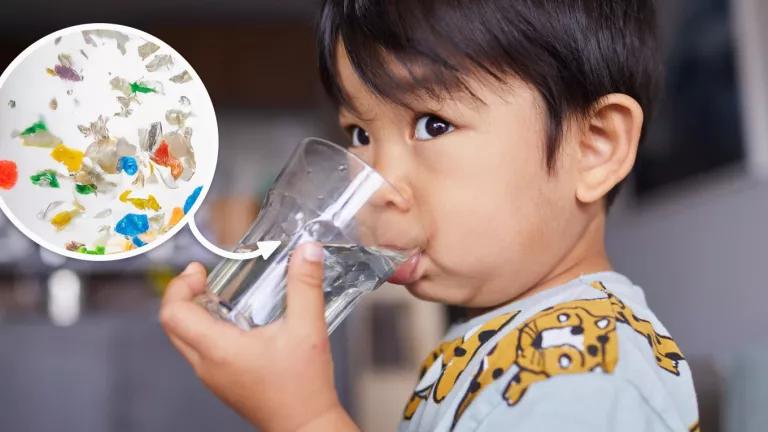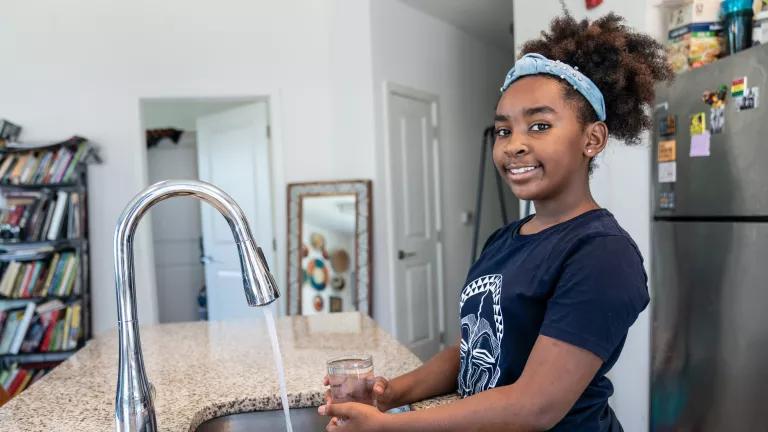Lowe’s, Sherwin-Williams, Home Depot Do the Right Thing

NRDC
Three American companies have moved to protect people’s lives from a deadly chemical that the federal government has so far refused to ban from store shelves—a major victory in the fight to stop the dismantling of protections against toxic substances in our workplaces, homes, and lives.
We hope this bold action against the sale of methylene chloride in response to public pressure will inspire the federal government to do what’s right and follow suit.
Without an outright ban there’s still a chance for another tragic story like that of young entrepreneur Drew Wynne, who was fatally overcome by toxic fumes from methylene chloride, commonly found in paint strippers.
Less than a year ago, Wynne’s business partner found him dead after Wynne, 31, attempted to resurface the floor of a walk-in refrigerator at his cold brew coffee company in Charleston, S.C., with a paint stripper containing methylene chloride that he bought at Lowe’s. Wynne was wearing a respirator and gloves.
His devastated family discovered that dozens of other people have died from exposure to the chemical over that last several decades – even though it is readily available over the counter to consumers.
Deadly Legacy
Methylene chloride has been linked to more than 60 deaths nationwide since 1980 and is also linked to lung and liver cancer, neurotoxicity, and reproductive toxicity. Another dangerous paint stripper, N-methylpyrrolidone, or NMP, which will also be removed, has been found to hinder fetal development and can cause miscarriage and stillbirth. According to the EPA, more than 60,000 U.S. workers and 2 million consumers are exposed to methylene chloride and NMP annually.
Lowe’s announced in late May that it will no longer sell products containing methylene chloride and NMP -- some 19 products in all, under brand names such as Goof Off, Jasco and Klean Strip.
Two weeks after the Lowe’s announcement, Sherwin-Williams, too, said publicly it will pull these toxic products off the shelves. Then, June 19, Home Depot followed suit, meaning the three major retailers selling these chemicals will remove them from their stores by the end of the year.
We hope that the Environmental Protection Agency will follow the logic that we and our close partner Safer Chemicals, Healthy Families, as well as other coalition members laid out for the retailers and put the United States in the company of the other countries that have declared a ban.
Story Behind the Story
Lowe’s decision came after more than 200,000 consumers nationwide, including tens of thousands of NRDC online activists, signed petitions urging the company to act. In early May, advocates held a week of action in more than a dozen states following a letter by our coalition that generated more than 40,000 public comments to the company and more than three million views of an NRDC Instagram video calling for Lowe’s to lead the industry in a ban.
NRDC also purchased a stock share in Lowe’s in order to attend its June shareholder meeting to make our case directly to the Board and CEO, and we planned a press conference prior to the meeting. After learning of our plans, Lowe’s acted before the press conference and meeting, garnering positive headlines about its action and avoiding negative ones about its lack thereof.
Pruitt’s Stubborn EPA
In January 2017, the EPA proposed banning paint strippers containing these chemicals under the newly strengthened Toxic Substances Control Act (TSCA), citing the products’ unreasonable risks to human health. However, deferring to the wishes of the chemical industry, the agency later shelved the proposed ban soon after Scott Pruitt was confirmed as EPA Administrator, and Pruitt has failed to finalize the ban over the past 18 months.
In May of this year, two days after Pruitt met with families who have lost loved ones due to methylene chloride exposure in the past 18 months, the EPA announced that it would finalize a methylene chloride rule. However, the agency has revealed few details on its planned regulatory action, offered no timeline, and has taken no final action.
The public fight with EPA over methylene chloride and NMP in paint-strippers is one important piece of a larger battle with the industry-friendly interests now in charge, including efforts to compel bans, testing requirements and other actions on other toxic solvents, “Teflon-like” PFAS chemicals, and organophosphate pesticides like chlorpyrifos.
People Can Act
It also signals an effective tactic in our efforts against toxics: When the federal government won’t do the right thing, taking the case to the American people will keep the pressure on to get dangerous chemicals that damage our and our children’s health off the market.
The vigorous and brave actions of the families of those hurt and killed by these toxics was key in educating millions of Americans and inspiring thousands to speak out.
As a result, this victory signals that the chemical industry, with its vast financial resources, consultants, lobbyists and a friendly EPA trying to dismantle science programs, right-to-know programs and toxics programs, won’t always get its way.
We will continue to work on multiple fronts, choose our battles and fight at the federal and state levels, and in the marketplace with concerned Americans, to take on the industry on behalf of human health and well-being.




